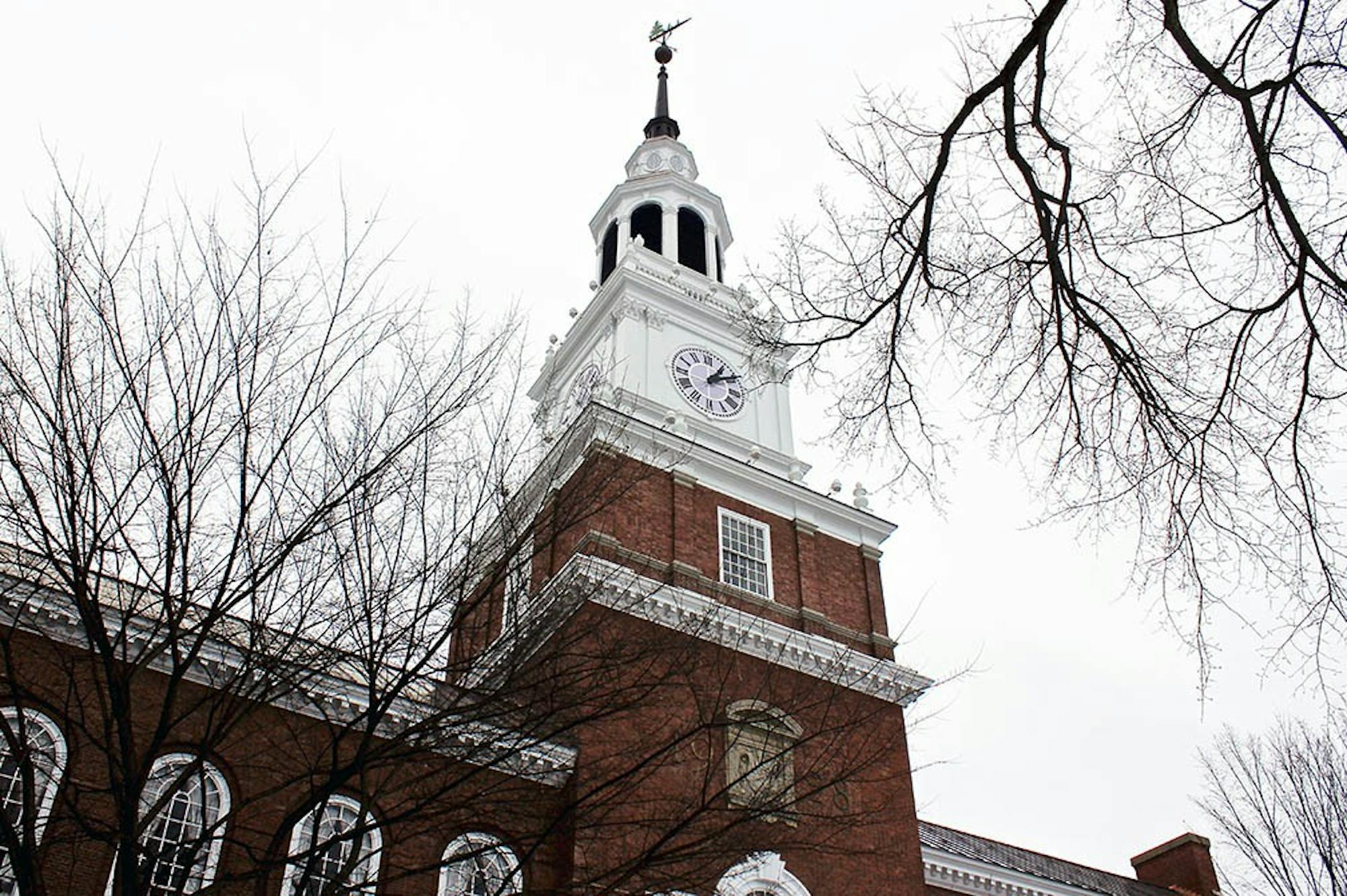On Feb. 23 and 24, representatives from the JED Foundation came to campus to discuss undergraduate mental health with a variety of campus offices and student groups. Following their visit, JED representatives are now preparing a strategic plan to be shared with Dartmouth senior leadership this spring.
The representatives met with a student focus group and members of the JED undergraduate committee, as well as with the Counseling Center, Dick’s House nursing and primary care, the Student Wellness Center and Student Accessibility Services, according to JED campus advisor Erlinda Delacruz, who came to campus.
The College announced a four-year partnership with the JED Foundation, a nonprofit that promotes mental health for adolescents and young adults, in May 2021, amid ongoing concerns about campus mental health and three freshman deaths by suicide during the pandemic.
According to Jessica Chiriboga ’24, who serves on the JED undergraduate committee, the first day was spent with the focus group, which had around 20 participants.
“[JED representatives] wanted to meet with students… and get a sense of their own personal experiences with mental health resources … life skills and social connectedness on campus,” Chiriboga said. “Those conversations were really powerful and students did not hold back in, sort of, their criticisms of the College.”
According to Pulkit Nagpal ’23, who participated in the focus group, the discussions were centered on a “sense of belonging” on campus. He said that despite professions of inclusivity, many members of the Dartmouth community regularly encounter exclusivity and toxic social environments.
“Dartmouth is a really special case in the sense that it can feel really stratified, whether that’s socioeconomically, people being in the Greek system and some people not and also maybe race,” Nagpal said. “The discussion surrounding Greek life was particularly salient.”
According to Chiriboga, on the second day of the JED visit, representatives met with members of the undergraduate committee. She said these meetings involved brainstorming what students need to “feel supported” and which policies need to change.
Chiriboga added that the group discussed life skills, social connection, identifying at-risk students, issues of substance abuse and other related topics.
She said that the committee also discussed the results of the “Healthy Minds Survey,” a copy of which was obtained by The Dartmouth.
The survey reported that in the 2020-2021 academic year, between 23% and 28% of the student body received treatment for mental health issues through Dick’s House counseling services and that there were a total of 320 mental health crisis appointments. Additionally, the report noted that there were 24 psychiatric hospitalizations among students during the same period.
JED representatives prepared a slide deck depicting the data from Dartmouth compared to national averages, which Chiriboga described as “startling.”
“In some areas we’re doing better than the national average, but in other areas we’re not,” she said, noting that one big area where Dartmouth is lower than the national average is “a sense of belonging on campus.”
According to Delacruz, such loneliness can “increase depressive symptoms and thoughts of suicide.”
Delacruz also noted Dartmouth’s “campus culture of perfectionism … seems to be a bit more pervasive than some other schools,” while noting the importance of “redefining what a ‘successful Dartmouth student’ looks like.”
Before the plan is operationalized, Delacruz said that the goal moving forward is to allow JED Foundation representatives time to draft the strategic plan, in consultation with College Health Service director Mark Reed and Spanish professor and former Dean of the College Rebecca Biron. She added that she anticipated that the plan would be drafted by the end of May or early summer.
Nagpal said that he hopes to see closer faculty involvement in campus mental health awareness and the “building [of] trust” between students and staff who have received mental health training.
“Training faculty all across the board on mental health is a priority,” he said. “We have this program called Dartmouth Cares, and I think right now it’s not required for faculty to participate,” he said.
Chiriboga also said there should be a focus on improving mental health resources.
“My goals would be creating a more welcoming campus for lower-income, POC and queer and trans students on campus, increasing awareness of mental health resources and then centralizing or doing an overhaul of our mental health resources to make sure are our current ones working,” she said.
Chiriboga added that this plan is only “one part of the puzzle.”
“It’s definitely going to take all of us to work together,” she said. “This probably represents one of our best opportunities to make lasting change.”
Chiriboga is a former member of The Dartmouth staff.




